|
Genres, Themes, Actors, and Directors:
- French Films
- Friendship
- Orphans
- Veterans
Review:
French director Serge Bourguignon’s Oscar-winning Best Foreign Film tackles the challenging topics of PTSD and cross-age friendships with sensitivity and compassion. From the film’s distressing beginning, we learn that Gozzi’s character — who goes by the Christian name of “Francoise” but was actually born as “Cybele” — is deeply scarred by outright rejection from both her parents:
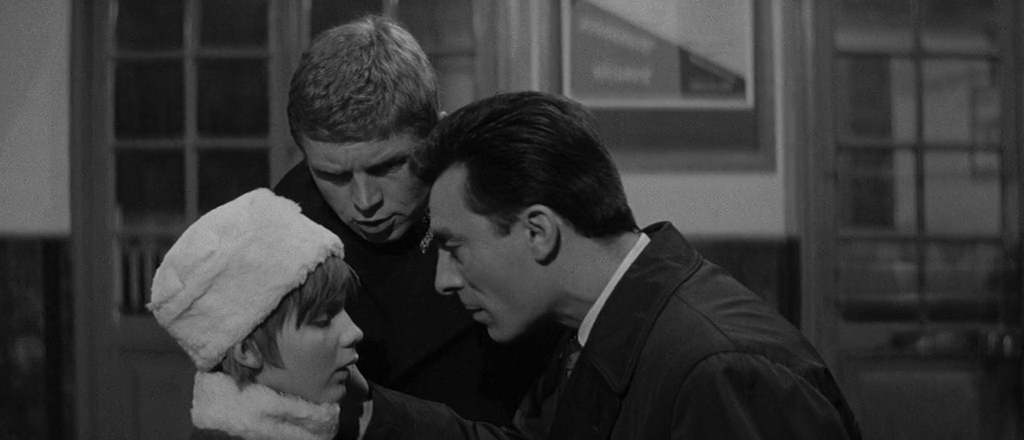
… and eager to secure a bond with a reliable adult. To that end, traumatized Krüger (emotionally stunted after believing he’s killed a girl in combat) fits the bill perfectly. However, Krüger and Bozzi’s age and gender differences make their friendship inherently problematic, and their situation is further complicated by Bozzi’s quasi-romantic overtures (she insists that once she’s old enough at 18, they should marry).

To his credit, Krüger’s Pierre never shows anything but non-sexual love and intentions towards Francoise; however, the concerns of those around him make complete sense. While a sympathetic artist-friend (Daniel Ivernel) insists that Pierre’s friendship with Francoise is a good thing (“With this little girl he’s found a world where he fits in, where he’s happy.”):

… the risk of harm in one way or another is real. Gozzi’s performance is remarkably natural and precocious (she apparently had fun simply “playing” with Krüger during shooting), while German-born Krüger is believably innocent yet troubled in a challenging role.
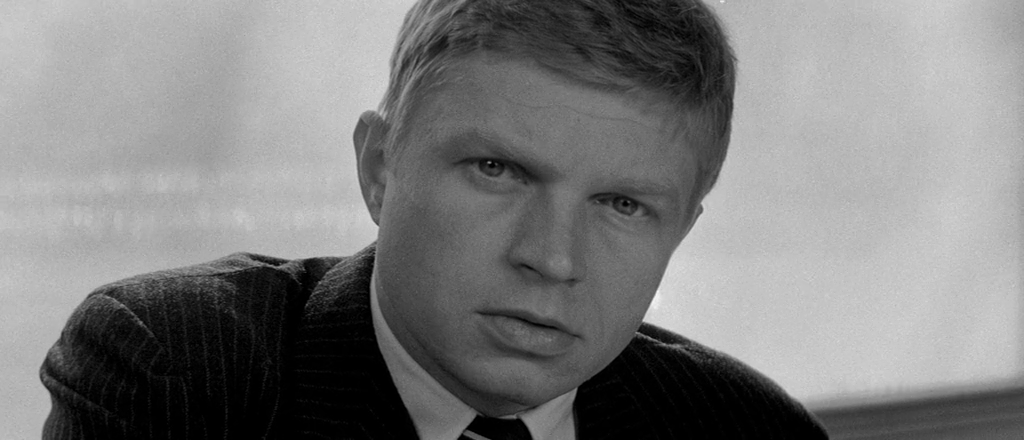
Notable Performances, Qualities, and Moments:
- Hardy Krüger as Pierre

- Patricia Gozzi as Francoise/Cybele
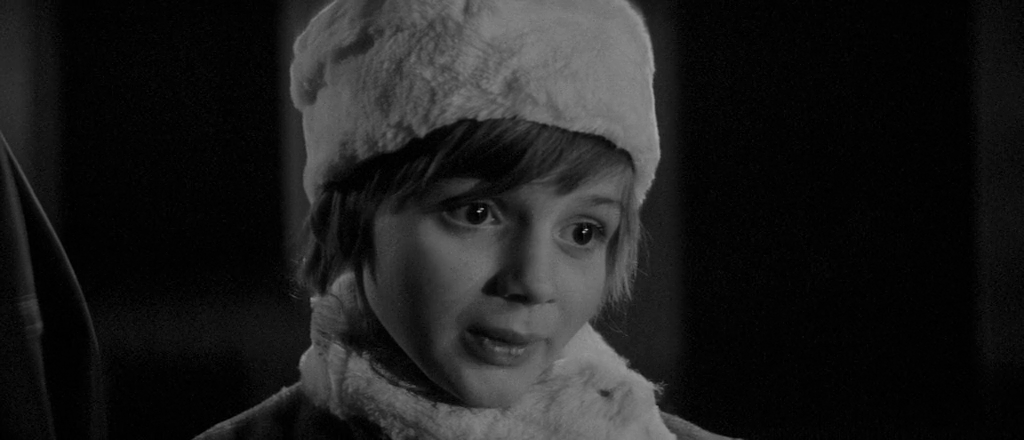
- Nicole Courcel as Madeleine
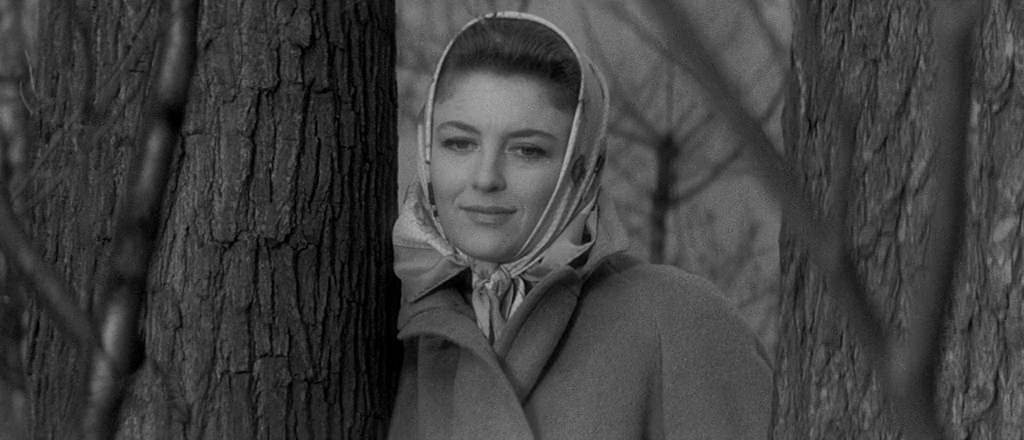
- Henri Decaë’s cinematography
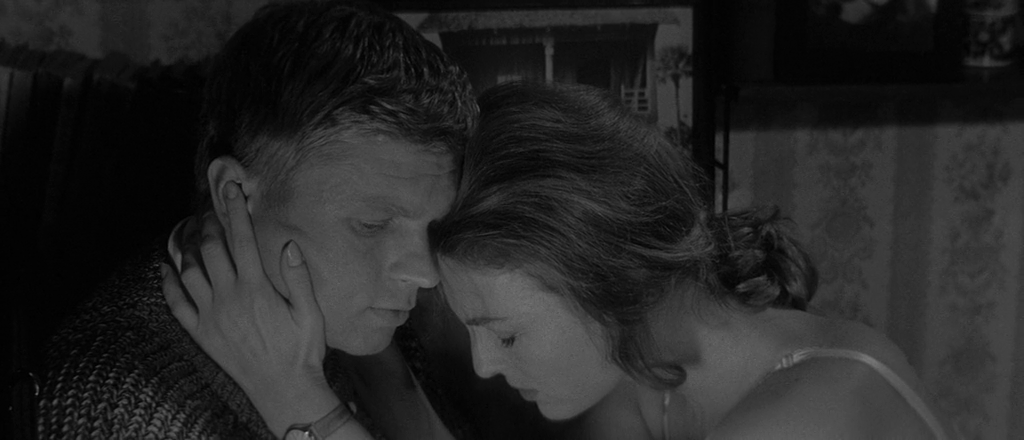
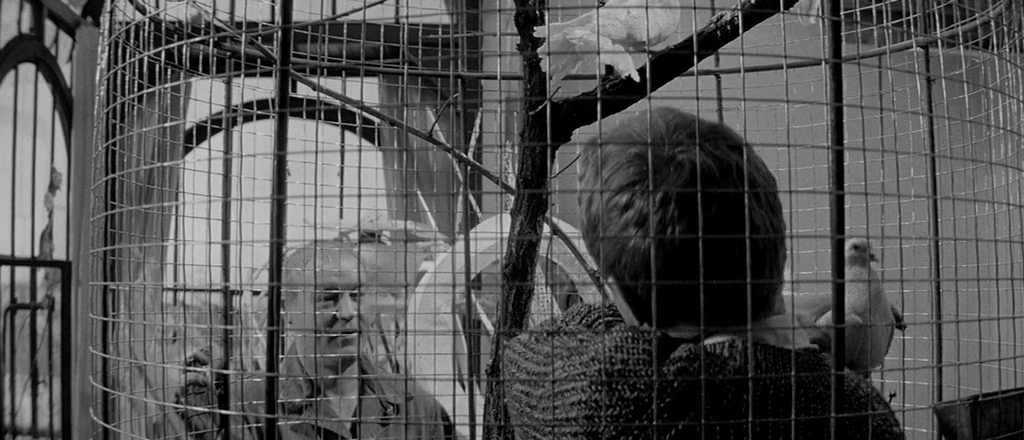
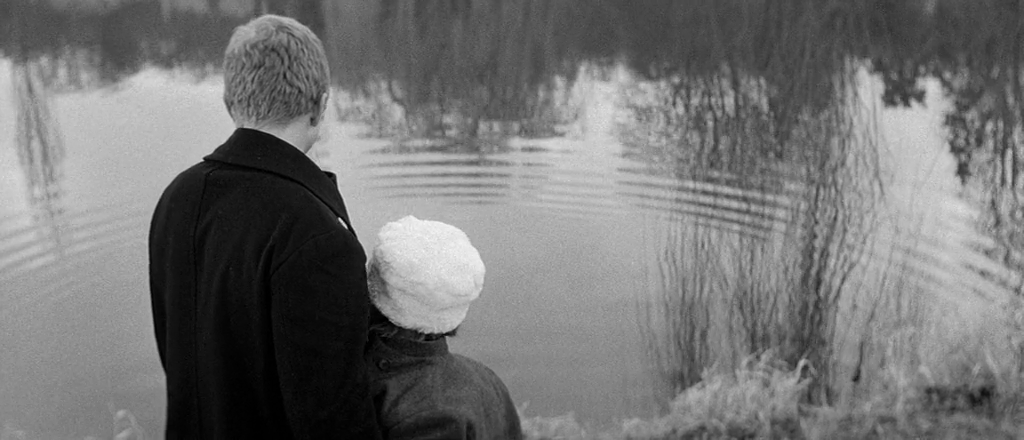
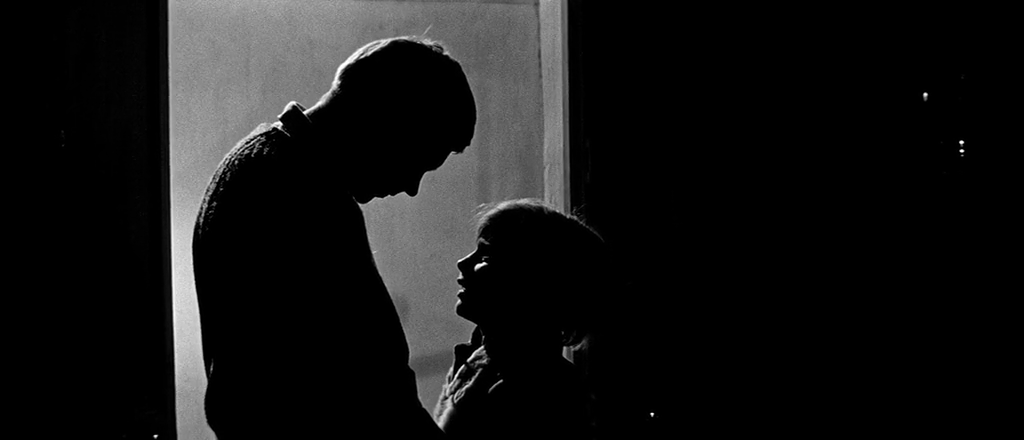
Must See?
Yes, for its historical relevance and as a fine film to check out.
Categories
Links:
|
3 thoughts on “Sundays and Cybele (1962)”
Must-see, as a challenging (yet satisfying) film with a singular storyline.
This was my second viewing. I first saw this film when I was a teenager. Because of the type of film that it is, it had a particular impact on this young gay teen – feeling somewhat disengaged from many people and searching for someone to relate to. (My life wasn’t at all nearly tragic – like the main characters here; nevertheless, it was easy for me to relate to a situation in which there would be those who might secretly judge me.)
There is certainly one major… not flaw, exactly – but an unfortunate plot element: the nurse falling in love with an amnesia victim. It’s an unlikely development (how often would that happen?) but, for the sake of the plot, it relieves us from thinking that Krüger’s character is a pedophile.
Yet, it’s mainly a film about suspicion without proof. More than that, it’s a combination of rare elements that collide in such a way that (most of) those observing it choose to jump to conclusions. The question is put to the viewer: Do you presume to know what you don’t know?
It’s also a reminder that very freakish things happen in life. Sometimes those things aren’t aberrations at all – though they may be removed from our experience. Sometimes they’re just deeply human.
I was once a precocious 12 year old girl myself, and preferred the company of adults to peers. I recall finding it perfectly natural to believe that one day I would become romantically involved with one of the handsome and kind men I saw around me (why not?) — so I could relate very specifically to Cybele (despite not emerging from her type of traumatic childhood).
A couple of specific incidents floated through my memory while watching: there was a mentally (emotionally?) delayed young man named Karl at my church who lived with his mother and loved eating corn tortillas for lunch. He was always super-friendly (yet not creepy) to me and my friend, and I recall seeing him drive around town in his silent, tiny electric car (quite a scene in those days; they hadn’t yet figured out that they needed to add noise to alert others). My friend and I went to visit him at his house one day, but my friend’s grandmother (who she stayed with during the summer) got panicked by this and we never went back.
Then there was a handsome guy in his early twenties who would come into the library where I worked as a young teen and chat with me (he was good-looking but didn’t seem especially compatible, given he only liked reading magazines). He walked home with me one time because he lived along the same path as me, and I remember him saying he wished I was “one of those girls who look younger than you actually are”. This obviously edges closer into the ick territory, but nothing ever emerged beyond this. I didn’t have much to say to him because he didn’t read books (!).
I have no idea if I simply got lucky, or projected some kind of internal strength that said “leave me alone unless you can match my intensity”, or if maybe most people aren’t really as creepy as the tragic examples we end up hearing about in the news. But all to say, Sundays and Cybele resonated with me, and I felt nothing but compassion for Kruger (and Gozzi).
Well said.